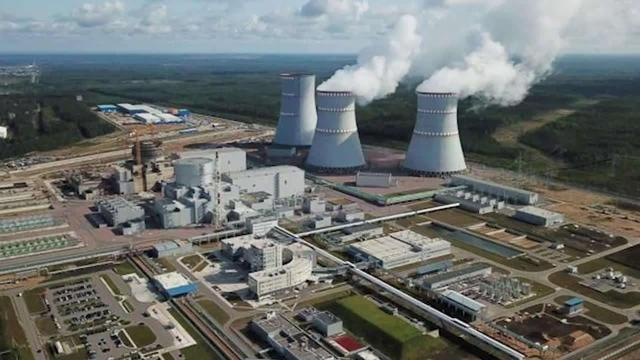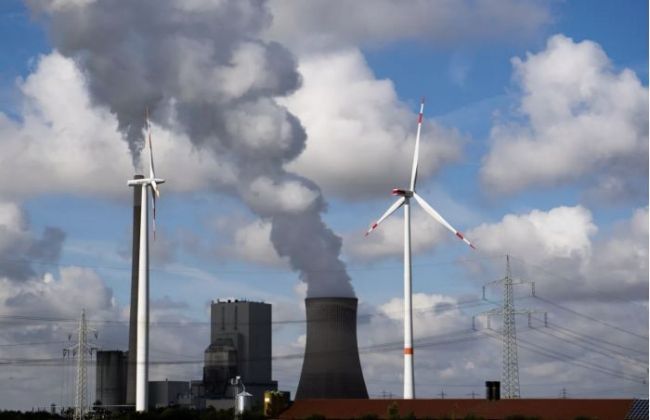The European Union's sanctions against Russia have reached their tenth round, but Russia's nuclear energy industry has not yet been affected. Although proposed by Member States, it was opposed.

On the first anniversary of the outbreak of the Russia-Uzbekistan conflict, the European Union approved the tenth round of sanctions against Russia, establishing an export ban to Russia worth more than 11 billion euros to restrict Russia's access to key electronic components and some industrial products. In addition, the EU will stop importing products such as Russian asphalt and synthetic rubber.
According to foreign media reports such as the US political news website Politico, when discussing the tenth round of sanctions among the European Union, Poland proposed to impose sanctions on Russia's nuclear energy industry. The proposal was strongly opposed by Hungary and other countries and was not passed.
The EU's high reliance on Russia's nuclear power supply chain is an important reason why Russia's nuclear energy sector has been excluded from the sanctions list so far.
Rosatom, the Russian state atomic energy company, is Russia's largest electricity producer and is responsible for running the entire Russian nuclear industry.
Rosatom is the world's leading operator of nuclear power projects thanks to the legacy of the Soviet nuclear sector. Rosatom currently has 73 reactor projects in various stages in 29 countries, and has signed bilateral agreements or memorandum of understanding.
The paper notes that in Armenia, Bangladesh, Belarus, Hungary, Slovakia and Uzbekistan, Russian-built nuclear reactors account for more than 10% of the countries' electricity supply. Turkey, Egypt and Iran are 4%-10% dependent on Russian nuclear power.
Rosatom is also a global leader in nuclear fuel supply. Currently, only nuclear fission reactors are in commercial operation in the world, most of which use uranium as a raw material. After uranium is mined from the mine, it needs to go through conversion, enrichment and other processes, and finally it is made into nuclear fuel elements.
Russia's nuclear power technology has also been exported to the EU in large quantities.
Currently, nuclear reactors built by Russia are located in 18 EU countries. Among them, there are 2 in Bulgaria, 6 in the Czech Republic, 2 in Finland, 4 in Hungary and 4 in Slovakia.
The Paks nuclear power plant is the only nuclear power plant in Hungary, with four Russian reactors, providing more than 40% of Hungary's electricity. Last August, Hungary announced that it would commission Rosatom to build two new nuclear reactors to boost the power generation at the Pax nuclear power plant.
Due to the particularity of nuclear power technology, nuclear reactors designed by Russia need to use nuclear fuel and maintenance components provided by Russia to operate normally, and replacement is very difficult.
Once the EU begins to impose sanctions on Russia's nuclear power industry, it will endanger the power supply security of Hungary and other countries.
In January this year, Hungarian Prime Minister Viktor Orban publicly stated that Hungary would not allow the EU’s sanctions against Russia to extend to the nuclear energy sector, and that Hungary would veto any related sanctions.
Even EU countries without Russian nuclear reactors are closely linked to Russia's nuclear power supply chain. For example, France, which has the largest number of nuclear power plants in Europe, has signed a uranium supply agreement with Russia.
Some countries in the European Union are also trying to wean themselves off their dependence on Russia's nuclear power supply chain.
In May last year, Finland announced that it had withdrawn its application for a construction permit for the Hanhikivi-1 nuclear power plant, suspending its cooperation with Rosatom on the project. According to the Russian Satellite News Agency, Rosatom has filed an indictment against Finland for this behavior, with a total amount of 3 billion US dollars.
"Because regulators need to analyze and license new fuel, this replacement process may take three years." Kamierczak, head of the European Atomic Energy Community, told Politico that due to the long-term shortage of global production capacity, the bigger problem is how to replace Russia's uranium enrichment and transformation services.
Kamierczak predicts that it may take 7-10 years to finally get rid of the dependence on Rosatom.
